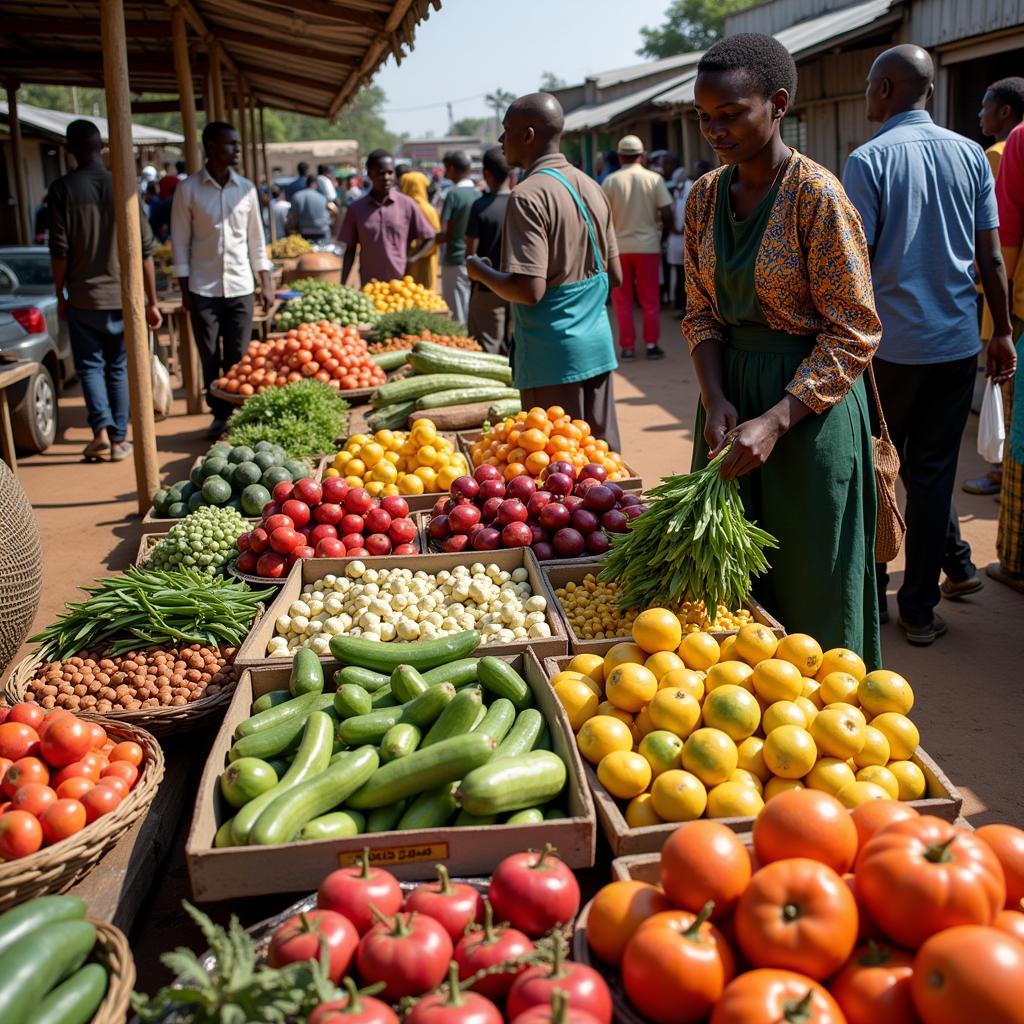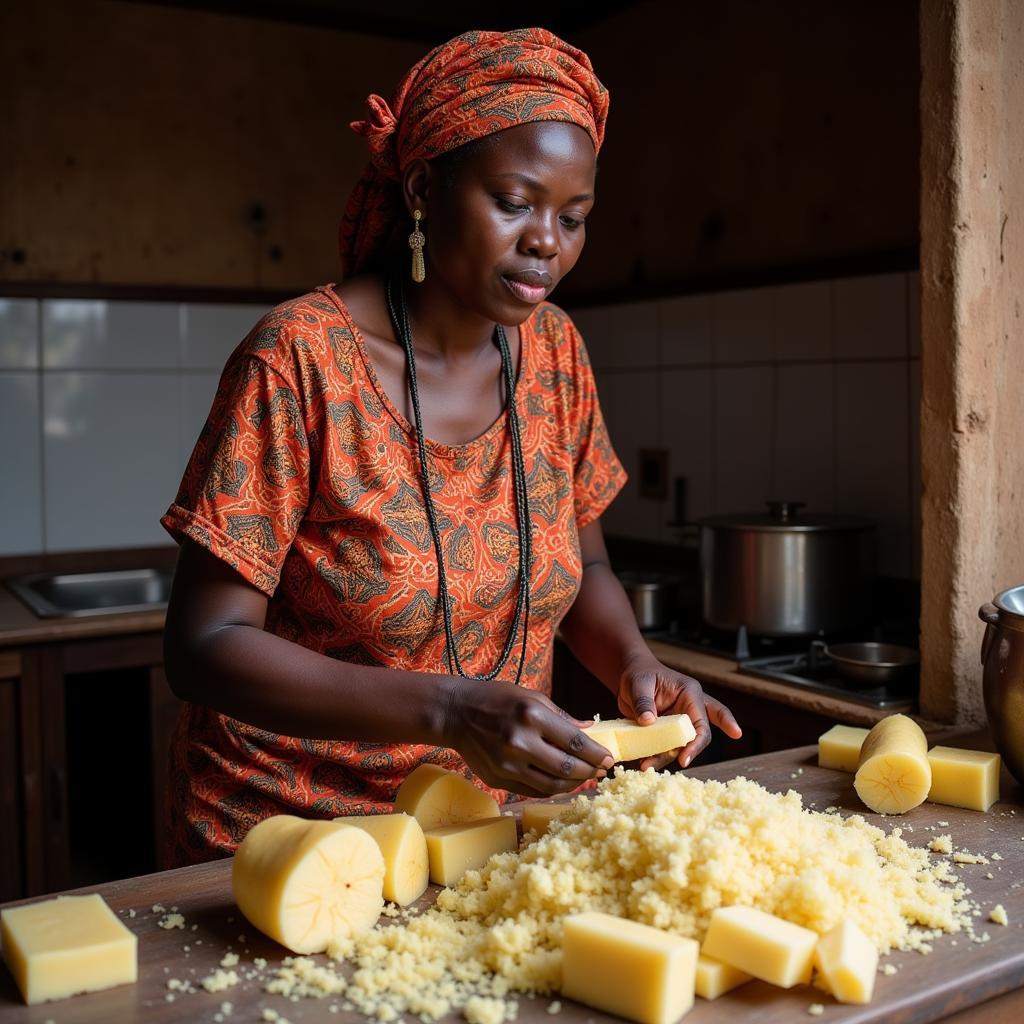Uncovering the Delicious World of African Dirty Food Materials
African cuisine, vibrant and diverse, is gaining global recognition for its bold flavors and unique ingredients. While many are familiar with popular dishes like Jollof rice or Piri-piri chicken, there’s a hidden gem within African culinary traditions – “dirty food materials.” This phrase, though unconventional, refers to a fascinating array of ingredients that are deeply rooted in African culture and history, offering a glimpse into the heart of its culinary heritage.
Deciphering “Dirty Food Materials”
The term “dirty food materials” might sound unappetizing at first glance, but it’s crucial to understand its context. This phrase isn’t about hygiene or unsanitary practices. Instead, it’s a colloquial term used in some African cultures to describe ingredients that are:
- Unprocessed or minimally processed: Think whole grains, tubers, legumes, and fresh produce, often sourced directly from local farms or markets.
- Rustic and earthy in flavor: These ingredients possess a distinct, natural taste that reflects the terroir and traditional cooking methods.
- Rich in nutrients and cultural significance: “Dirty food materials” are often packed with essential vitamins, minerals, and fiber, playing a vital role in nourishment and cultural identity.
 Vibrant African Market Produce
Vibrant African Market Produce
Examples of African “Dirty Food Materials”
These ingredients vary across different regions of Africa, reflecting the continent’s incredible biodiversity and cultural diversity. Some common examples include:
- Cassava: A starchy root vegetable, a staple in many African cuisines, used to make fufu, garri, and various other dishes.
- Plantains: Larger than bananas, plantains are a versatile ingredient, enjoyed ripe or unripe, fried, boiled, or roasted.
- Yams: Another starchy root vegetable, often boiled, fried, or pounded into a paste, forming the base for many traditional dishes.
- Millet: A drought-resistant grain, a good source of protein and fiber, often used to make porridge, couscous, and beverages.
- Palm Oil: Extracted from the fruit of oil palm trees, palm oil lends its distinctive flavor and vibrant color to stews, soups, and sauces.
 Preparing Cassava in a Traditional African Kitchen
Preparing Cassava in a Traditional African Kitchen
The Importance of “Dirty Food Materials” in African Cuisine
These humble ingredients are more than just food; they represent a connection to the land, tradition, and cultural identity:
- Sustainable and Locally Sourced: Often grown locally, these ingredients promote sustainable farming practices and reduce reliance on imported goods.
- Affordable and Accessible: For many communities, these staple foods provide affordable and readily available sources of essential nutrients.
- Traditional Knowledge and Recipes: The use of these ingredients is often passed down through generations, preserving culinary heritage and cultural practices.
 Family Enjoying a Traditional African Meal Together
Family Enjoying a Traditional African Meal Together
Embracing the “Dirt” in African Cuisine
While the term “dirty food materials” might seem unusual, it’s essential to recognize the value and importance of these ingredients in African cuisine. They represent sustainability, cultural heritage, and above all, delicious and nourishing food that has sustained generations. So, the next time you encounter African cuisine, embrace the “dirt” and savor the unique flavors and traditions it represents.
FAQs About African “Dirty Food Materials”
1. Are “dirty food materials” safe to eat?
Absolutely! The term “dirty” refers to their unprocessed nature, not hygiene. When prepared properly, these ingredients are perfectly safe and incredibly nutritious.
2. Where can I find these ingredients?
African grocery stores, international markets, or even some local farmers markets often carry these ingredients. Online retailers specializing in African products are also a great option.
3. What are some popular dishes made with these ingredients?
Dishes like fufu and soup (made with cassava, plantains, or yams), jollof rice (often cooked with palm oil), and various stews and porridges feature these “dirty food materials” as key components.
4. Are there any health benefits to consuming these ingredients?
Yes! These unprocessed ingredients are packed with fiber, vitamins, minerals, and antioxidants, contributing to a healthy and balanced diet.
5. How can I incorporate these ingredients into my own cooking?
Start by researching traditional African recipes that feature these ingredients. You can find numerous online resources and cookbooks dedicated to African cuisine. Experiment with flavors and cooking methods to create your own delicious and culturally inspired dishes.
Need Help Exploring African Cuisine?
For further assistance in discovering the diverse world of African food and ingredients, feel free to reach out to us. Contact us at:
Phone: +255768904061
Email: kaka.mag@gmail.com
Address: Mbarali DC Mawindi, Kangaga, Tanzania
Our team is available 24/7 to answer your questions and help you embark on your culinary journey through Africa.

